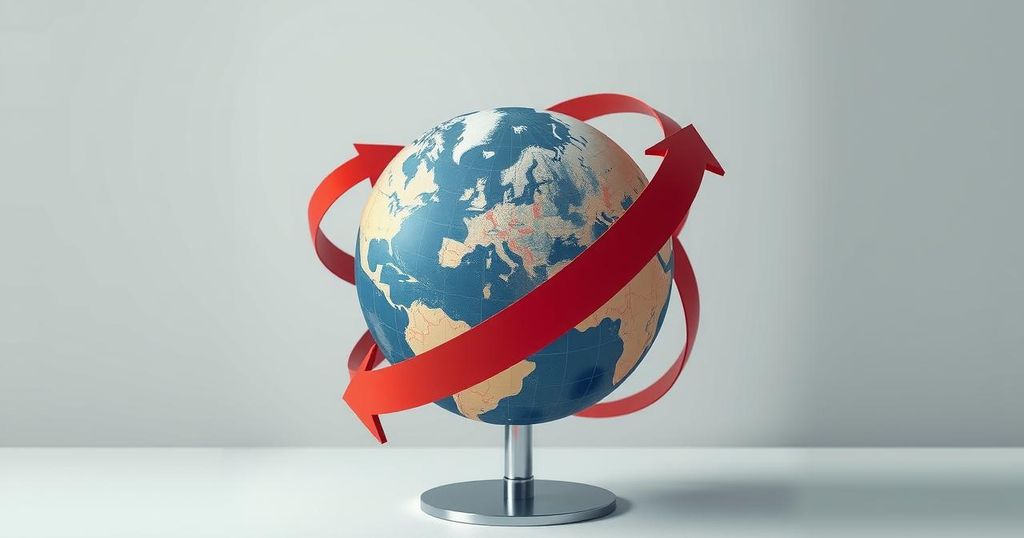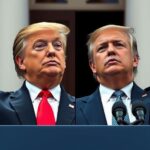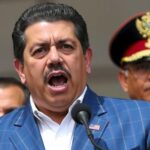Trump and Maduro: A Dual Dynamic of Negotiation and Ideological Tension
President Trump’s approach to Nicolás Maduro has shifted in his second term, favoring pragmatic negotiations despite maintaining sanctions and opposing Maduro’s regime. Recent dialogues have focused on the release of detained Americans and deportation of Venezuelans, revealing a potential thaw in U.S.-Venezuela relations. The backdrop of Venezuela’s economic struggles and increasing Chinese influence adds complexity to any future engagement.
In 2019, President Donald Trump designated Juan Guaidó, the opposition leader, as Venezuela’s interim president in opposition to Nicolás Maduro’s rule since 2013. This action resulted in Venezuela severing diplomatic relations with the U.S. and aligned with the Trump administration’s strategy of maximum pressure aimed at regime change in Caracas. Today, however, amid evolving political dynamics, Trump appears to have adopted a more pragmatic approach in dealing with Maduro, particularly concerning the release of detained Americans and the repatriation of Venezuelan nationals from the U.S.
The current Trump administration has yet to officially recognize Maduro and maintains sanctions against Venezuela, preferring instead to endorse Edmundo González as the legitimate president. Nonetheless, negotiations have taken place, evidenced by U.S. envoy Richard Grenell’s visit to Caracas aimed at securing the release of six Americans. Furthermore, Venezuela has agreed to accept around 200 deported nationals, signaling a willingness to engage despite persistent tensions.
Despite a continuation of its anti-Maduro rhetoric, the administration’s willingness to negotiate raises concerns among both Republicans and Democrats. Critics argue that such overtures could inadvertently lend legitimacy to Maduro’s regime. Nevertheless, the Trump administration’s pursuit of immigration deals and deportations may supersede other U.S. issues with Venezuela as the administration navigates its political landscape.
Interactions between Trump and Maduro illustrate a complex relationship shaped by mutual self-interest. Maduro’s acknowledgment of Trump’s 2020 election victory reflects a pragmatic approach toward a powerful adversary, despite ideological differences. Maduro remains tactical, leveraging opportunities for dialogue while occasionally adopting a more combative rhetorical stance in international forums.
Venezuela’s economic condition, exacerbated by severe U.S. sanctions since 2017, presents an urgent challenge for Maduro. With an estimated 80% of the population living in poverty, the slow recovery of the oil industry offers potential pathways for cooperation. Maduro may seek to discuss easing of sanctions with the Trump administration, despite mixed signals from Washington regarding future oil exports from Venezuela to the U.S.
The legitimacy of Maduro’s recent actions is further complicated by the electoral fraud during the 2024 elections, which has drawn sharp criticism within the U.S. political sphere. Trump’s support for hardline positions on Venezuela aligns with anti-communist sentiments among his base, particularly in Florida. Any perceived compromise with the Maduro regime could alienate this critical voter demographic.
Competition with China continues to complicate U.S.-Venezuela relations. Under the Maduro administration, ties with China have deepened, with Beijing becoming a primary importer of Venezuelan crude oil. While some in the Trump administration remain focused on curtailing Chinese influence in Latin America, others view diplomatic engagement with China differently, impacting overall U.S. policy towards Venezuela.
Ultimately, the future of U.S.-Venezuela relations under Trump will hinge on the internal factions that exert influence within his administration and the political priorities he chooses to prioritize, determining the trajectory of decisions regarding Maduro’s government and its implications for broader international relations.
In summary, U.S.-Venezuela relations under President Trump reflect a complex interplay of self-interest, pragmatic negotiations, and ideological opposition. While maintaining sanctions and a commitment to regime change, the Trump administration has begun engaging in dialogue with Maduro primarily around immigration issues. The evolving political context, alongside Venezuela’s challenging economic landscape and external influences like China, will significantly shape future interactions between the two nations.
Original Source: theconversation.com








Post Comment